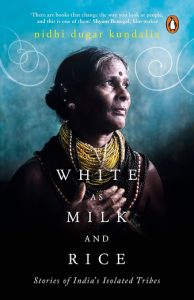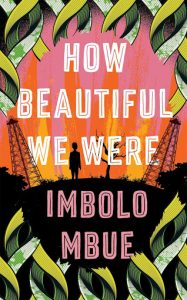By Edward Hammond
Regulating access to genetic data is “the big issue of our time” in crop development, says Cornell University’s Edward Buckler. The maize geneticist contends that, at least for industrial agriculture, “Germplasm is becoming the information technology that it always was. So then, the question is who has the right to look at the database of whole genome sequences?”
With access to genome sequences of thousands of farmers’ varieties of crops, Buckler says, seed companies should be able to identify key sequences that enable plants to adapt to local conditions and to fit human needs, such as for responding to climate change. These “adaptive SNPs” (single nucleotide polymorphisms) are key genetic variations that may guide altering the genomes of plants with technologies like CRISPR (clustered regularly-interspaced short palindromic repeats). Butler says “we are getting very close to genome editing the variants we want.”“If I or a seed company had a database with 100,000 whole genome sequences of maize landraces [i.e. farmers’ varieties], I could take some very educated guesses on the adaptive SNPs,” says Buckler, who concludes, “The cross cultural implications of this will be extremely contentious.” (By “cross-cultural” Buckler means international.)
The comments were made last year to United States Department of Agriculture (USDA) international genetic resources policy coordinators, and were released under the US Freedom of Information Act. (1) Buckler urged USDA to raise the policy issues on access and use of genetic data with Diversity Seek (DivSeek), an international initiative to coordinate databases of deep sequenced crops.
(The e-mail is appended to the attached pdf version of this report, also available here: http://www.twn.my/title2/susagri/2016/sa494/Genetic%20data_big_issue_19%20April%202016.pdf).
Buckler’s comments echo those of NGOs and farmers’ organizations that are concerned about the socio-economic, fairness, and safety implications of synthetic biology’s 1-2 combination of deep sequencing and genome editing. The release of Buckler’s e-mail shows that these concerns are not just civil society worries, but are high in the minds of government advisors as well.
Although it is clear that synthetic biology is opening the way for new ways to exploit small farmers’ seeds and crop wild relatives, don’t look for the US or Europe to move to quickly address the issues in international policy forums. There’s no evidence that USDA accepted Buckler’s advice and, in fact, the DivSeek project is trying to forge ahead without engaging the broader community of biodiversity policymakers.
Further, European sources indicate that European Union (EU) governments aim to shy away from the issue at the Subsidiary Body on Scientific, Technical and Technological Advice (SBSTTA) of the Convention on Biological Diversity (CBD), which will consider synthetic biology at its meeting beginning 25 April in Montreal.
One reason developed countries are reluctant is that their seed industry enjoys “open access” databases in which crop genomic data is posted and can be accessed without restrictions (or obligations) – yet still be patentable. As synthetic biology develops, the more genomic data that is made available without access and benefit sharing conditions equals more raw materials for corporate patents, entrenching a system that is inherently unfair to small farmers, indigenous peoples and developing countries. So, for Northern countries seeking to advance industrial interests, inaction is advantageous.
While DivSeek is in a position to clearly understand these issues, it too is avoiding them. Recently released records of DivSeek meetings show that members including Germany’s IPK Gatersleben seed bank and the Global Crop Diversity Trust are urging DivSeek to avoid engagement with policymakers, even as the Project formalizes relationships with a number of mass sequencing projects, such as G2P-SOL, which plans to deep sequence 50,000 Solanaceae (nightshade) seeds. Those plants primarily originate from developing countries, especially Latin America, such as tomatoes, potatoes, tobacco, peppers, and their wild relatives, but include African (e.g. coffee) and Asian (e.g. aubergine) natives.
Key DivSeek members are even inclined to ignore a Resolution from the Governing Body of the International Treaty on Plant Genetic Resources for Food and Agriculture (ITPGRFA) asking it to report on the policy implications of DivSeek technologies (2).
Fracking for Genebanks: Who directs the process and enjoys the results?
Genebank managers also have their own motives to avoid policy discussions about managing the implications of synthetic biology. In nearly 2000 pages released so far under FOIA, a repeated theme that surfaces in discussions between participants in DivSeek is a feeling that the work of genebanks is undervalued. For instance, one US genebank manager suffers from a case of freezer envy, expressing frustration that US Senate staff members know about the Svalbard seed vault (3) but were unaware that the US has its own long term seed storage facility in Colorado.
The managers’ gloomy sense of declining relevance was summed up in remarks attributed to Theo van Hintum, of the Dutch Centre for Genetic Resources, who lamented to other genebankers that they are thought “merely to be those nice, dedicated people relegated to working away in the cold basement,” who, in the words of USDA counterpart Chris Richards, are “sink[ing] ever further below the radar.” (4)
Many genebankers thus see inexpensive large scale deep genome sequencing as imparting new relevance and importance to their work. Shifting from sending seed packets off to companies in inglorious transactions, some managers see themselves as potential masters of newly valorized genetic resources, because seeds are becoming exploitable in aggressive new ways thanks to synthetic biology. Think of synthetic biology as fracking technology for genebanks, and of many genebank managers as eager to retain a position of control, in appreciable part in order to enhance their own standing.
Synthetic biology is therefore seen as a ticket out of the cold basement and into sunnier scientific circles. And there, in part lies DivSeek’s reluctance to engage with policy forums like ITPGRFA and the CBD, as doing so cedes territory to others in what is perceived as an impending synthetic biology gold rush.
But genebankers are the curators of collections of genetic resources, not the creators, nor the owners. Much less are genebanks vested with sovereign rights over seeds. The disposition of ex situ biodiversity collections, and newly collected materials and their sequences, is not for the collections to negotiate with industry or others and, accordingly, avoidance of engaging the policy realm is neither ethically nor legally tenable.
No “Right to be Forgotten” for “public” genomic data
So while the US, EU, and projects like DivSeek cannot be counted upon to take the initiative to ensure this important aspect of synthetic biology is addressed fairly and equitably, developing country governments cannot afford to sit idle as projects like Bean-Adapt, 3000 Chickpea Genomes, and others move to sequence more and more farmers’ varieties and wild relatives and to drop those genomes into databases accessible without access and benefit sharing provisions consistent with the CBD and, for some plants, ITPGRFA.
The EU may have a “Right to be Forgotten” for information about its own citizens on the internet, but it and its allies will forever argue that the valuable genomes of farmers’ seeds and other plants from developing countries must remain freely accessible, and exploitable by seed companies, once they are posted online.
Governments can begin to tackle the question of how to apply access and benefit sharing rules to genetic sequence data – for instance, considering data access and use agreements – when the CBD SBSTTA considers synthetic biology beginning 25 April in Montreal. – Third World Network
(Edward Hammond is Director, Prickly Research (eh@pricklyresearch.com), Research Consultant, Third World Network (www.twn.my)




